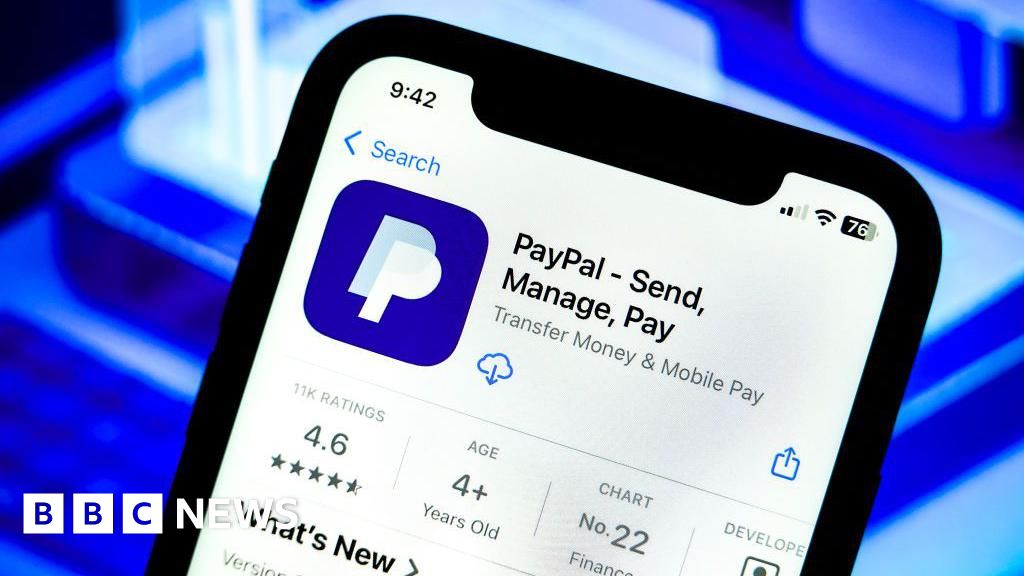European banks have seen widespread unauthorised direct debits from PayPal accounts, the German Savings Banks Association (DSGV) says.
The German newspaper Sueddeutsche Zeitung (SZ) indicates that payments worth in the region of €10 billion (£8.6bn) had to be blocked after PayPal's fraud-checking system failed.
Payments were paused on Monday after lenders reported millions of suspicious direct debits from the payment firm.
The DSGV confirmed to the BBC there had been incidents involving unauthorized direct debits initiated by PayPal against various credit institutions.
The BBC has approached PayPal for comments.
It was reported that certain transactions from our banking partners and potentially their customers were affected by a temporary service interruption.
A PayPal spokesperson stated, We quickly identified the cause and are working closely with our banking partners to ensure that all accounts have been updated. The DSGV noted that PayPal had acknowledged the disruptions and assured that the issue has been resolved.
Payment transactions to and from PayPal have reportedly resumed normal operations. However, the DSGV indicated that these incidents substantially impacted payment transactions across Europe, primarily in Germany.
Supervisory authorities have also been notified about these incidents at PayPal.
PayPal aims to filter out scams before they reach banks using a security system, specifically addressing fake direct debits set up by criminals through the impersonation of banks or financial institutions.
According to SZ, PayPal's filter system malfunctioned on Monday, causing unchecked direct debits to be forwarded to banks alongside legitimate transactions.
Shares in the payment firm dropped 1.9% following the report.




















